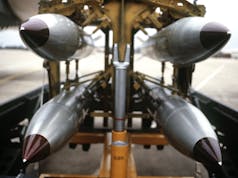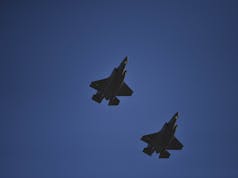On Sunday the 31st of May, a Royal Air Force remotely piloted Reaper investigated a location in northern Iraq, some seventeen miles west of Tuz Khurmatu, where an Islamic State group had been identified as having established themselves at a bunker situated in the mountains.
The Reaper’s crew conducted a thorough check of the area, finding no signs of any civilians nearby, but confirming the presence of several terrorists close to the bunker itself, who were attempting to conceal themselves in heavy foliage.
The Royal Air Force say that the Reaper therefore conducted two attacks in succession, destroying the bunker with a GBU-12 guided bomb, then hitting those terrorists who were outside the bunker with a Hellfire missile.
Background on Operation Shader
The Ministry of Defence say that since liberating the last territory held by Daesh, in March 2019, the RAF has flown daily armed reconnaissance patrols to “prevent the violent extremists from re-establishing footholds in Iraq or Syria”.
The Ministry of Defence also advise that precision strikes result from the “patient and methodical production of actionable intelligence”, and are “only conducted after thorough surveillance of the target and surrounding area for any signs of civilians, ensuring they are not placed at risk”.
This section is intended to provide a bit of background on British efforts in the region and if you’ve read it before, please remember others may not have.
In September last year, the Ministry of Defence had announced that over 1,000 personnel were engaged in theatre and that the Royal Air Force had conducted around 1,000 airstrikes, flying over 2,800 sorties, killing over 3,000 Islamic State fighters.
Last year, it was reported that the Royal Air Force was operating at its most intense for 25 years in a single theatre of operation which far outstripped the UK involvement in Iraq and Afghanistan – RAF jets have dropped 11 times more bombs (1,276 strikes) on Syria and Iraq in the preceding 12 months than they had in the busiest year of action in Afghanistan a decade previously.













Wonder if the U.S. sold the Brits any of those “slice and dice” Hellfire missiles? Certainly less collateral damage than a standard Hellfire plus added psychological impact.